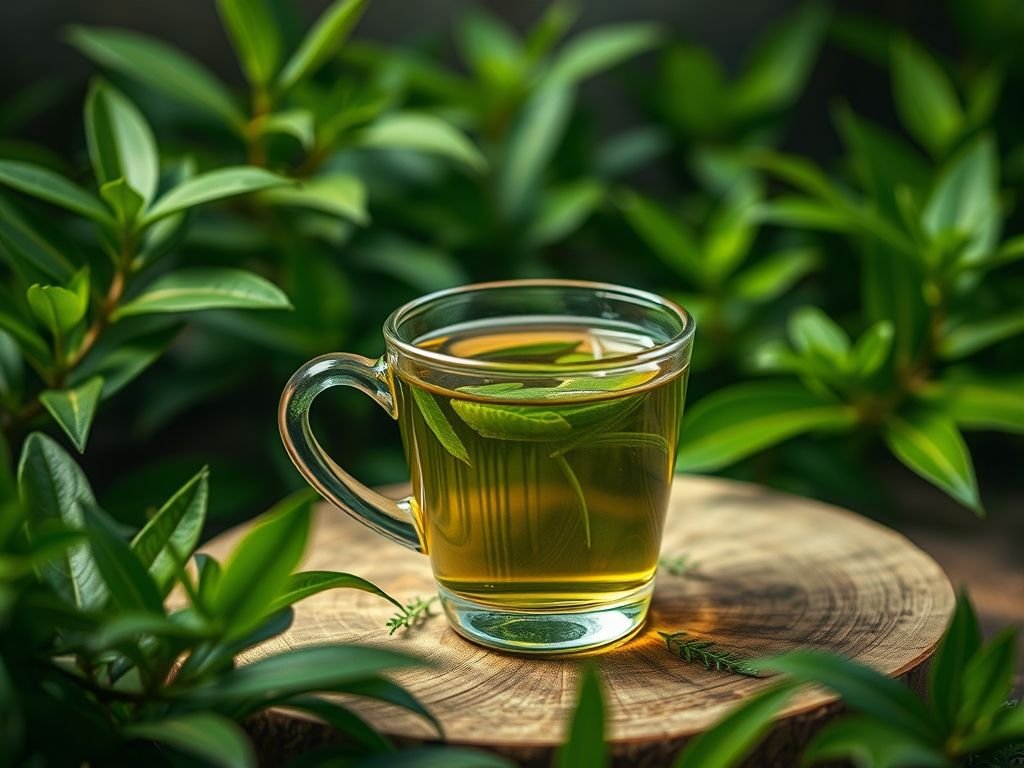Green Tea: The Definitive Glossary
Green tea is a popular beverage made from the leaves of the Camellia sinensis plant. Known for its numerous health benefits, it has been consumed for centuries in various cultures. This article delves into the significance of green tea, its health benefits, and practical applications for those interested in natural health and herbal medicines.
What is Green Tea?
Green tea is made from unoxidized tea leaves, which preserves its natural green color and contains a high concentration of antioxidants. Unlike black tea, which undergoes oxidation, green tea is processed minimally, allowing it to retain its beneficial compounds. These compounds include catechins, particularly epigallocatechin gallate (EGCG), which have been studied for their health-promoting properties.
Health Benefits of Green Tea
Green tea offers a myriad of health benefits, making it a popular choice among those interested in natural health. Here are some key benefits:
- Weight Loss: Research suggests that green tea can boost metabolism and help with fat burning, making it a popular choice for those looking to lose weight.
- Anxiety Control: The amino acid L-theanine found in green tea can promote relaxation without drowsiness, helping to control anxiety levels.
- Improved Brain Function: The combination of caffeine and L-theanine may enhance brain function, leading to improved focus and attention.
- Heart Health: Studies indicate that regular consumption of green tea may lower the risk of cardiovascular diseases.
How to Incorporate Green Tea into Your Daily Life
Integrating green tea into your daily routine can be simple and enjoyable. Here are some practical tips:
- Start Your Day: Replace your morning coffee with a cup of green tea to kickstart your metabolism.
- Healthy Snacking: Enjoy green tea as a refreshing drink during snack time, pairing it with fruits or nuts.
- Use in Cooking: Incorporate green tea powder (matcha) into smoothies, desserts, or even savory dishes for an added health boost.
- Stay Hydrated: Drink green tea throughout the day as a low-calorie alternative to sugary beverages.
Understanding green tea can be enhanced by exploring related concepts:
- Herbal Medicine: Green tea is often classified within the realm of herbal medicine, where natural remedies are explored for health benefits.
- Antioxidants: The role of antioxidants in health, particularly how catechins in green tea combat oxidative stress.
- Weight Management: Exploring additional natural methods for weight management and how green tea fits into a holistic approach.
- Mindfulness: The ritual of drinking tea can enhance mindfulness practices, promoting mental well-being.
Practical Applications of Green Tea
Now that we understand the benefits of green tea, let's look at some applications:
- Tea Blends: Create your own tea blends for specific health goals, such as combining green tea with ginger for digestive benefits.
- Detox Drinks: Use green tea as a base for detox drinks by adding lemon or mint.
- Skin Care: Green tea can be infused into beauty products for its anti-inflammatory properties, making it beneficial for skin health.
Conclusion
Green tea is not just a beverage; it is a powerful ally in promoting health and wellness. From aiding in weight loss and anxiety control to improving overall health, its benefits are numerous. By understanding how to incorporate green tea into your daily routine, you can enhance your health journey. Consider making it a part of your lifestyle today.
Reflect on how green tea can play a role in your wellness journey and take actionable steps to include it in your daily routine.

